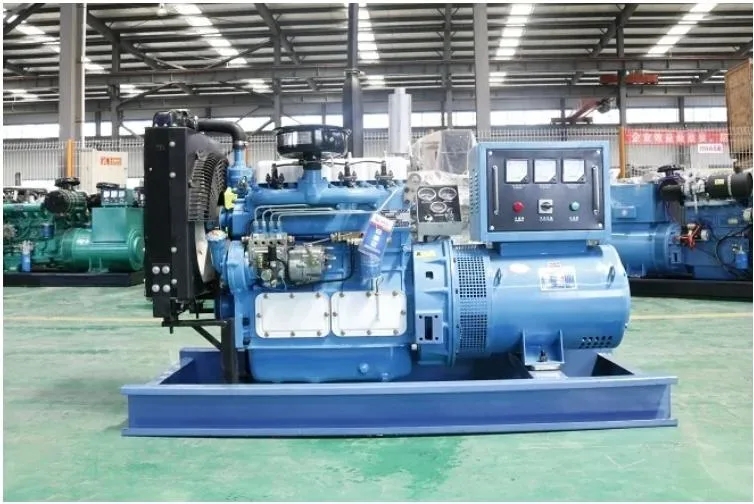Introduction
In today's world, electricity is an essential resource that powers our homes, businesses, and daily lives. However, power outages can disrupt our routines and leave us vulnerable to various inconveniences. To combat this issue, many homeowners are turning to diesel generators as a reliable backup power solution for their homes. In this comprehensive guide, we will explore the benefits, considerations, installation, maintenance, and best practices of using a diesel generator for home use.
Chapter 1: Understanding Diesel Generators
Diesel generators are a popular choice for home backup power due to their efficiency, durability, and reliability. Unlike gasoline generators, diesel generators use compression ignition to generate power, making them more fuel-efficient and capable of providing continuous power for extended periods. They are available in various sizes and power capacities to suit different household needs, from essential power for a few appliances to whole-house backup power. Diesel generators are typically more robust and long-lasting than other types of generators, making them a solid investment for homeowners looking for a reliable backup power solution.

read the article : Benefits of Using a Diesel Generator for Home Use
There are several advantages to using a diesel generator for home backup power. One of the primary benefits is the fuel efficiency of diesel engines, which allows diesel generators to provide more power for longer durations compared to gasoline generators. Diesel fuel is also less flammable than gasoline, making diesel generators safer to store and use in residential settings. Additionally, diesel generators are known for their durability and reliability, making them suitable for frequent use and long-term power outages. With proper maintenance, a diesel generator can last for many years, providing peace of mind and uninterrupted power supply during emergencies.
Chapter 3: Considerations Before Purchasing a Diesel Generator
Before investing in a diesel generator for home use, there are several key factors to consider to ensure you select the right generator for your needs. First and foremost, assess your power requirements to determine the size and capacity of the generator you will need. Consider the essential appliances and devices you want to power during an outage and calculate the total wattage to determine the generator size. It is also crucial to consider the noise level of the generator, as diesel generators can be louder than other types of generators. Additionally, assess the installation space, fuel availability, and maintenance requirements of the generator to ensure it is a suitable fit for your home.
Chapter 4: Installation of a Diesel Generator for Home Use
Proper installation of a diesel generator is essential to ensure optimal performance and safety. It is recommended to hire a professional electrician or generator installer to handle the installation process, as they have the expertise and tools to set up the generator correctly. The installation location should be well-ventilated, away from flammable materials, and compliant with local building codes and regulations. The generator should be connected to a transfer switch to safely and seamlessly switch between utility power and generator power during an outage. Regular maintenance and periodic testing of the generator are also crucial to ensure it is ready to provide backup power when needed.
Chapter 5: Maintenance and Care of a Diesel Generator
Proper maintenance and care are essential to keep your diesel generator in optimal condition and ensure it functions reliably during power outages. Regular maintenance tasks include checking and changing the oil and filters, inspecting the fuel system, testing the battery, and monitoring fluid levels. It is recommended to follow the manufacturer's maintenance schedule and guidelines to keep the generator running smoothly. Additionally, periodic load testing and exercising the generator under load conditions are essential to prevent issues and ensure it is ready to provide backup power when required. By following a routine maintenance schedule, you can extend the life of your diesel generator and avoid costly repairs.
Chapter 6: Best Practices for Using a Diesel Generator for Home Use
To maximize the performance and longevity of your diesel generator, it is essential to follow best practices for its operation and maintenance. Start by reading and understanding the manufacturer's manual to familiarize yourself with the generator's features, operation, and maintenance requirements. Keep a supply of fresh diesel fuel on hand and store it in a safe and well-ventilated area away from heat sources. Regularly inspect the generator for any signs of damage or wear and address any issues promptly to prevent further damage. It is also recommended to test the generator periodically and keep a record of maintenance tasks to ensure the generator is in top working condition.
Chapter 7: Conclusion
In conclusion, diesel generators are a reliable and efficient backup power solution for homeowners looking to protect their homes and families during power outages. With their fuel efficiency, durability, and reliability, diesel generators offer a long-term power solution that can provide peace of mind and uninterrupted power supply during emergencies. By understanding the benefits, considerations, installation, maintenance, and best practices of using a diesel generator for home use, homeowners can make an informed decision and ensure their generator is ready to provide backup power when needed. Investing in a diesel generator is a smart choice for homeowners seeking a dependable and long-lasting backup power solution for their homes.
